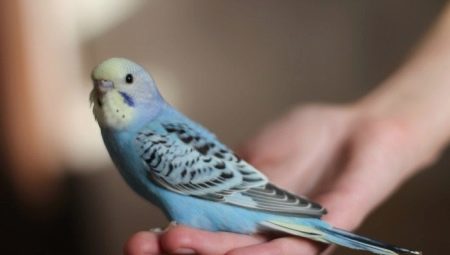Budgies are fun and active pets. In order for the bird to always be healthy and in a good mood, it is important to ensure the correct sleep and wake state when keeping it. And for this you need to know how long it takes a parrot to sleep.
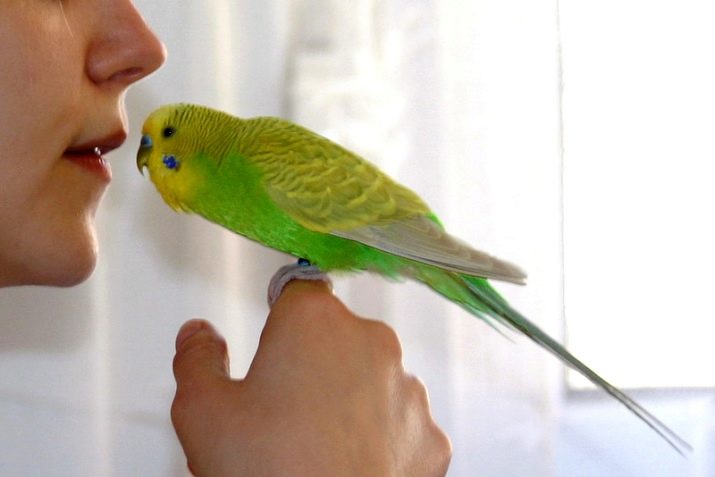
Sleep duration
In nature, budgies are found in Australia. It is very hot here, and therefore birds often prefer to doze off even in the daytime, hiding from the scorching sun in the shade of dense foliage. In the genes, this habit was also preserved by individuals bred in artificial conditions, so many of them like to relax at noon, most often in the summer. The owner should not be afraid of this behavior, daytime sleep does not mean boredom or a parrot's disease - this is the norm. Usually, a pet needs at least half an hour to rest. In order for the bird to sleep peacefully at night, it needs to ensure complete darkness and silence. A full night's sleep of a parrot lasts 10-12 hours, in winter this period can last up to 14 hours.
If the pet is constantly energetic, mobile and active, then he can oversleep even more time.
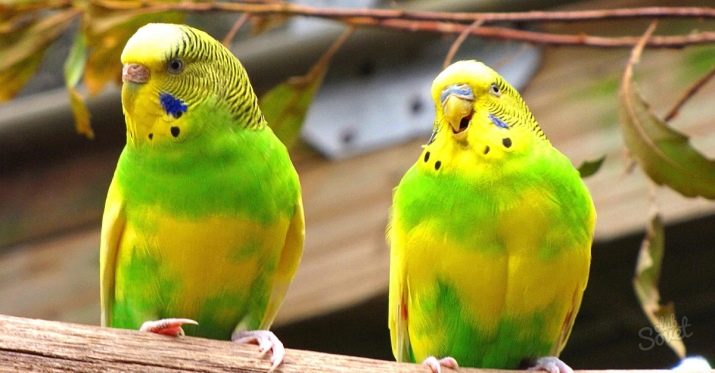
Sleeping poses
Experts in the field of ornithology recommend observing the pose in which the parrot sleeps. Many of them like to sleep, standing on one leg. Only hardy and strong birds are capable of this, only they can maintain balance. If the owner does not notice that the pet is sleeping on one foot, then this may be an indicator of the unhealthy state of the bird. If she is weak, injured, caught an infection or kept in poor conditions, then most likely she will sleep on two legs. The same sleeping position is preferred by older individuals.
Seeing that the budgie is sleeping, having frizzled and buried its beak in feathers, the owner should know that, most likely, the pet was frozen. In this position, he tries to maintain the warmth of his own body. The owner needs to change the temperature in the bird’s cage, since hypothermia is quite dangerous for a budgie.
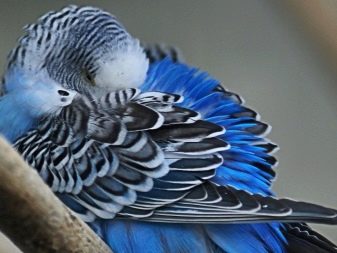
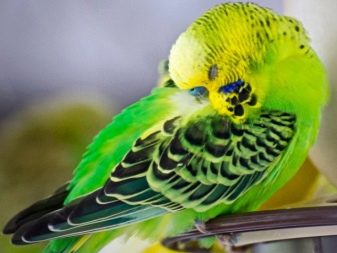
We create conditions for sleep
Noticing that the bird sleeps up to 12 hours a day, do not worry. Worse if she fails to sleep the set time. A sleepy bird will feel uncomfortable, her appetite will deteriorate, she will add hours to the prescribed hours, which will distort the necessary sleep and wakefulness regime and negatively affect the health of the parrot. To ensure a good full sleep for the pet, it is necessary to exclude all extraneous sounds with the advent of night, turn off the computer, radio, music, close the window and even curtain the curtains tightly.
A parrot can be frightened by the shadow of a car driving on the street or a hanging toy that has moved from a draft.
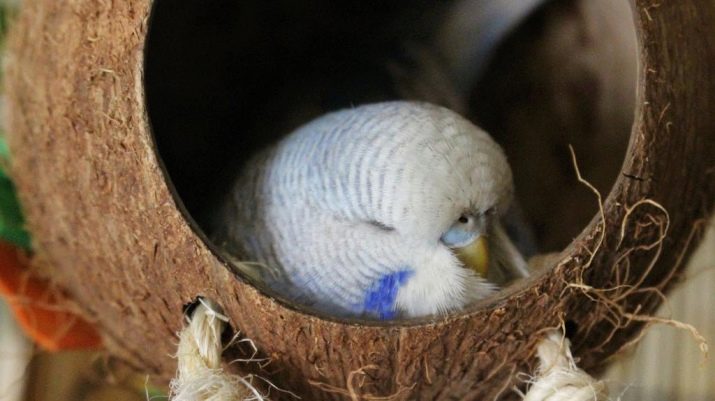
It is important to turn off the phone so that an unexpected night call does not scare the wavy. Many people cannot fall asleep without a TV and turn it off only after waking up in the morning. A parrot in this situation will be anxious all night, a flicker of the screen will alert a tired bird, and then it will have to make up for hours of sleep in the daytime. Another point that can scare a parrot is a fall from the perch. Many owners clean all swings and poles for the night. The fact is that a parrot falling asleep on one leg at night can lose balance and fall. He is unlikely to get injured, but he will be very scared and will not be able to fall asleep for a long time. Some owners as a "bed" put in a cage a cardboard shelf with which the bird can not fall.
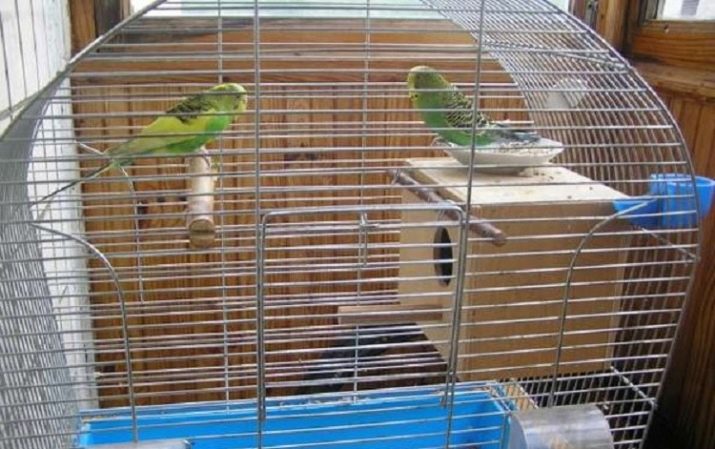
If you can’t follow the sleep and wakeful regimen at all, and your pet is active at night, and then sleeps all day, then you can cover his cage with a cloak for the night. Choose air-permeable material so that there is normal ventilation in the cage. Do not expect that the parrot’s sleep will improve immediately, but after a few days the pet will adapt to the new regime and will perceive the cloak as a suitable condition for immersion in sleep. After some time, the wavy itself will take off to its usual place for sleeping, seeing the veil in the hands of the owner. If suitable conditions for sleeping are not created, then the bird will practically not sleep. The following symptoms are characteristic of an animal with chronic lack of sleep:
- feather falling out;
- tendency to pluck feathers;
- regular drowsiness and lethargy;
- irritability;
- depression;
- aggression;
- lack of appetite;
- unplanned laying of eggs.
If during the examination and in the analyzes nothing terrible was found, then the owner needs to change the conditions of detention, including adjusting the sleep and wakefulness regime.
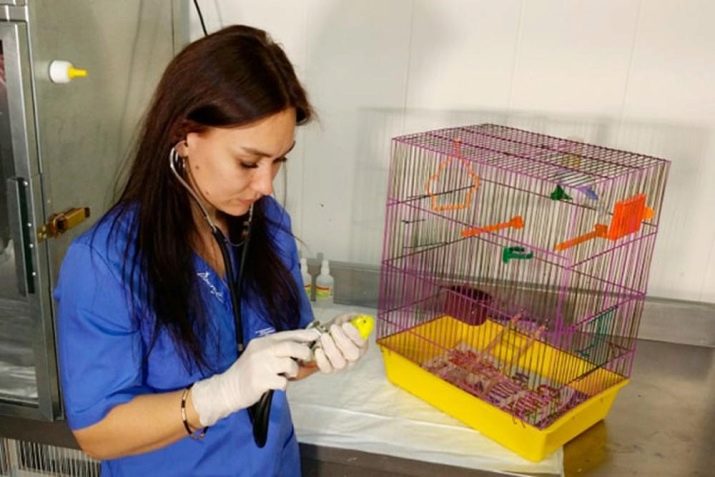
Can I wake up?
Sometimes a parrot is required, on the contrary, not to put to sleep, but to wake. For example, a pet got a habitual afternoon half-hour sleep, but the owner planned a trip to the veterinarian. As already noted, the bird should feel safe during sleep, and therefore it is impossible to abruptly wake the parrot with loud sounds. The pet, which was awakened by sudden loud music during sleep, will begin a panic attack, which can even provoke a cardiac arrest. If such a terrible outcome does not follow, then a sharply awakened bird will become nervous, shy for a long time, for several days it will not fully sleep and may lose confidence in its owner.
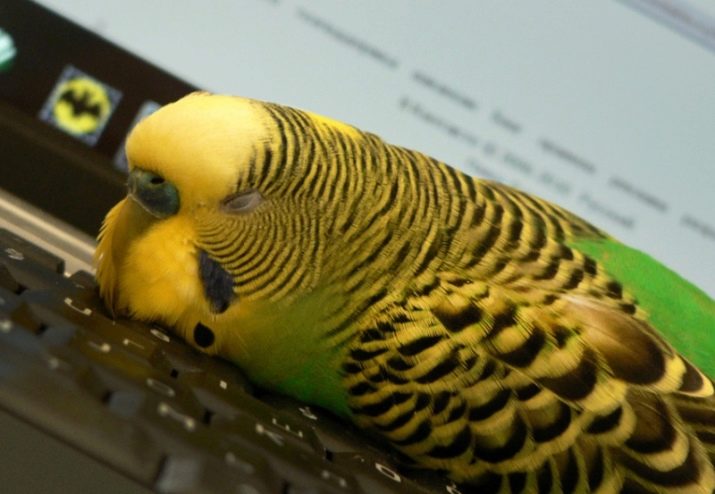
Tips about the sleep mode of parrots - in the next video.
